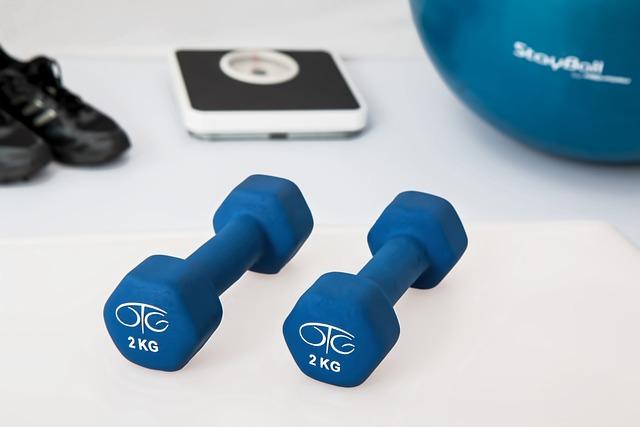In an era where our smartphones serve as pocket-sized personal trainers, nutritionists, and wellness gurus, weight loss apps have emerged as popular tools in the pursuit of health and fitness goals. These digital companions promise to simplify the complex journey of weight management by offering features like calorie counting, exercise tracking, and personalized meal plans. However, amidst the sleek interfaces and persuasive claims, a pressing question arises: can these apps truly be trusted for accurate tracking? As we delve into the world of weight loss technology, we will explore the promises and pitfalls of these apps, evaluating their effectiveness and reliability. Join us as we navigate the intersection of technology and wellness, where every swipe and tap could potentially influence our journey to a healthier self.
Evaluating the Accuracy of Weight Loss Apps
In the realm of digital health, weight loss apps have emerged as popular tools for individuals aiming to shed pounds and maintain a healthy lifestyle. However, the question of their accuracy in tracking progress remains pivotal. These apps often rely on user input, which can be inherently flawed due to human error. Additionally, the algorithms used to calculate calorie intake and expenditure can vary significantly between different platforms, potentially leading to discrepancies.
When assessing the reliability of these apps, consider the following factors:
- Data Sources: Are the nutritional databases comprehensive and regularly updated?
- Customization: Does the app allow for personalized settings that account for individual metabolic rates and activity levels?
- Integration: Can the app sync with wearable devices for more precise activity tracking?
While these tools offer convenience and motivation, it’s crucial to approach their data with a critical eye and, if necessary, consult with a healthcare professional for personalized advice.

Understanding Data Privacy and Security Concerns
In the digital age, the convenience of weight loss apps is often tempered by the looming specter of data privacy and security concerns. While these apps promise a personalized journey towards fitness, they also collect sensitive information ranging from physical activity levels to dietary habits. This treasure trove of data can be invaluable for creating customized health plans but raises questions about how securely this information is stored and shared. With numerous cases of data breaches making headlines, users are rightfully cautious about the potential misuse of their personal information.
When considering a weight loss app, it’s crucial to delve into its privacy policies and security measures. Key aspects to examine include:
- Data Encryption: Does the app encrypt your data both in transit and at rest?
- Third-Party Sharing: Are there clear policies on how and with whom your data is shared?
- User Control: Can you easily access, modify, or delete your data?
- Transparency: Does the app provide regular updates on its privacy practices?
By scrutinizing these elements, users can make informed decisions about which platforms to trust with their health data, ensuring that their journey towards wellness doesn’t come at the expense of their privacy.
Analyzing the Role of Technology in Personal Health Goals
The proliferation of weight loss apps has transformed how individuals approach their personal health objectives. These digital tools offer an array of features that promise to simplify the journey towards a healthier lifestyle. However, the question of their reliability remains pertinent. Weight loss apps often provide users with calorie counts, exercise tracking, and even personalized meal plans, yet the accuracy of these features can vary significantly. It’s crucial to understand that these apps are only as precise as the data inputted by users and the algorithms they employ. Variability in food database entries and exercise calculations can lead to discrepancies, making it essential for users to remain vigilant and informed.
Despite these challenges, weight loss apps can still serve as valuable allies in one’s health journey. They offer a sense of accountability and motivation, which can be instrumental in maintaining long-term habits. To maximize their effectiveness, consider the following strategies:
- Cross-reference app data with other trusted sources.
- Regularly update your personal information for more tailored recommendations.
- Be mindful of the psychological impact of constant tracking and strive for a balanced approach.
Embracing these practices can help ensure that weight loss apps support, rather than hinder, the pursuit of personal health goals.

Expert Tips for Choosing Reliable Weight Loss Tools
When selecting the best tools for your weight loss journey, consider these expert suggestions to ensure reliability and effectiveness. First, evaluate the credibility of the app developers. Look for well-known companies or those with a track record in the health industry. Additionally, verify whether the app is endorsed by medical professionals or nutritionists, as this can be a mark of its accuracy and trustworthiness.
- Check User Reviews: Browse through user feedback on app stores or forums to gauge the app’s performance and reliability from real-world experiences.
- Assess Data Privacy: Ensure that the app complies with data protection regulations and offers clear privacy policies, safeguarding your personal information.
- Look for Customization Options: A good app should allow you to tailor your goals and preferences, providing a personalized experience that aligns with your lifestyle.
consider integrating multiple tools to cross-verify data, such as pairing a digital food scale with your app for precise calorie tracking. By following these tips, you can confidently choose tools that support your weight loss goals while ensuring accuracy and safety.
In Conclusion
In the vast digital landscape, weight loss apps stand as both navigators and companions on the journey to health. They offer promises wrapped in algorithms and data points, yet the question of trust lingers like an echo in the mind of every user. As we traverse this path, it becomes essential to balance reliance on technology with personal intuition and professional guidance. These apps, with their dazzling interfaces and instant feedback, are tools—not oracles. the journey to well-being is as much about self-discovery as it is about numbers and metrics. As you lace up your shoes and step onto this path, let curiosity and caution guide you, knowing that the ultimate compass lies within.
